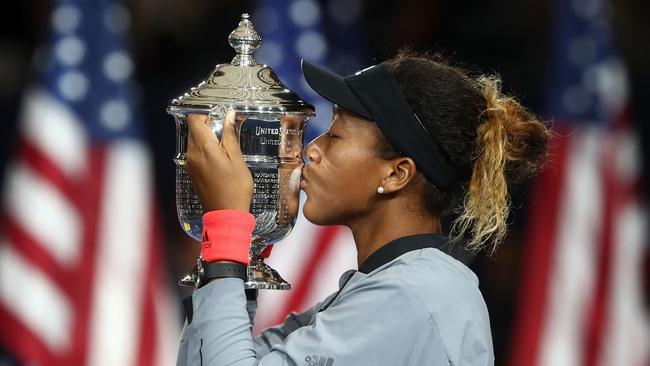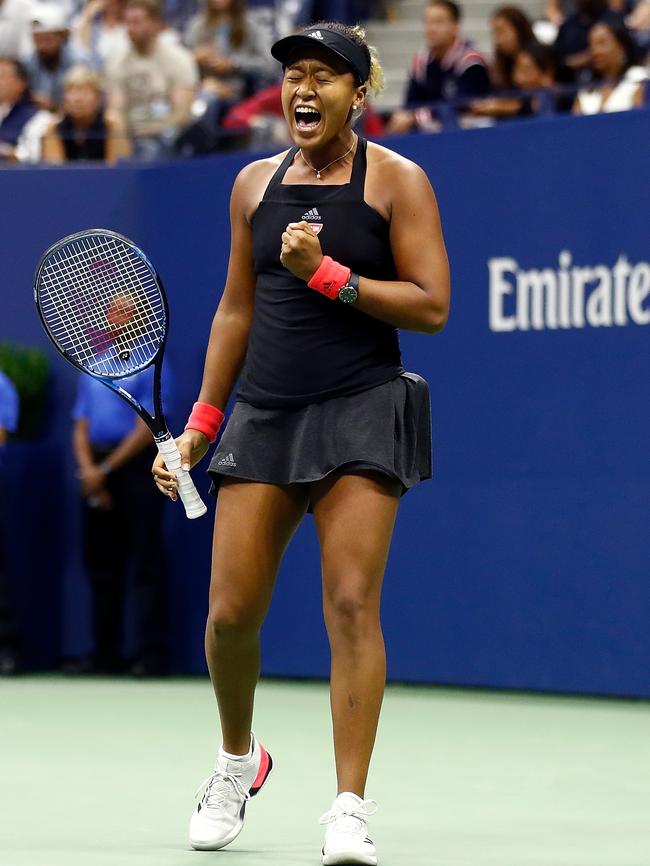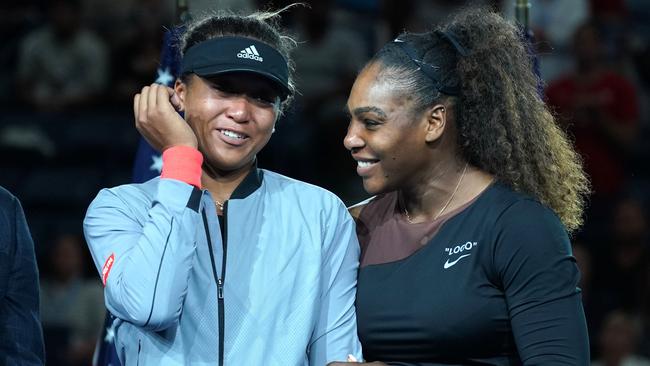US Open: Naomi Osaka’s triumph should be a thunderclap for a sport in need of fresh stars
Introducing Naomi Osaka: your 2018 US Open women’s singles champion. Her triumph should be a thunderclap for a sport in need of fresh stars.

A word here about Naomi Osaka, who won a major tennis tournament this weekend in New York City.
Since Osaka’s victory at the US Open women’s singles final, almost all of discussion has centered on the player she beat: Serena Williams, the tennis legend and 23-time major winner who verbally tangled with a chair umpire and wound up getting penalised in a manner which accelerated her defeat.
Second-guessing has been rampant. Did Williams go too far? Or was it the umpire, Carlos Ramos, who crossed a line? Game officials make good and bad calls — it’s part of any sport. On the other hand, should Ramos have taken note of the stakes and the moment and done more to warn Williams? Williams is far from the first tennis player to have a confrontation with an umpire, and this was the US Open final.

There have also been a whole array of adjacent conversations about sportsmanship, emotion, sexism and double standards. Williams believes she was penalised in a manner that a similarly-acting male player would not have. There’s also Williams’s fraught history with the Open itself which includes run-ins with officials at matches in 2004, 2009 and 2011.
Meanwhile, I just want to point out that Naomi Osaka is your 2018 US Open women’s singles champion.
I’m not trying to downplay what was a surreal, consequential scene — one that tennis fans may debate for years.
I just want Naomi Osaka, who won her first major tournament, to get her due.
But let’s talk about how this match went sideways. After losing the first set, Williams looked to be pulling herself back into the match, only to have it crumble apart.
First, Williams picked up a warning for receiving mid-match coaching (a no-no in tournaments like the Open, but an infraction that’s very loosely patrolled). Incredulous at the suggestion she was “cheating,” she resumed playing, only to later get a code violation and a point deduction for smashing a racket. Frustrated, Williams kept at Ramos — calling him a “thief” for the point deduction, admonishing him to apologise — until Ramos decided he’d had enough, and docked Williams an entire game.
It was a huge deal, because it pushed Osaka’s second-set advantage from 4-3 to 5-3, putting Osaka on the doorstep of victory.
It was also a huge deal because Serena Williams is Serena Williams. A groundbreaking champion, Williams entered this final on the verge of a historic, record-tying 24th major tournament singles title. She was doing so barely a year after the birth of her first child, and a series of surgeries after life-threatening complications.
At 36, Williams means a great deal to a great number of people.
One of them is Naomi Osaka.

This match had been the 20-year-old Osaka’s fantasy: a showdown versus her idol on the biggest American stage in tennis. Years before, Osaka — born in Japan to a Japanese mother and a Haitian father, but raised most of her life in the United States — sat in this stadium watching her heroes, none greater than Williams, who, like Osaka, had been coached by a father daring enough to believe that, some day, this was possible.
Osaka would model her game after Williams’s. Today, it is easy to see — Osaka possesses a serve that tops 110 mph, as well as a range of suffocating strokes. She’s taken on Williams’s former hitting partner, Sascha Bajin, as a coach, with the undisguised intent of borrowing from her Obi-Wan. When Osaka wins an important point, she even mimics Serena’s famous self-encouraging “Come on!” though it comes out softly, like a “Come on Jr.”
Like Williams, Osaka also stands for more than tennis — she’s now the first Japanese player to win a major tournament, and there’s a whole Haitian community celebrating her success as well.
Osaka admitted that she’d once done a third-grade report about Williams for school. “I coloured it and everything,” she recalled vividly, as it is not such ancient history. When Osaka won her semifinal on Thursday against Madison Keys, she’d confessed that during the match, she’d been daydreaming of getting the chance to play Williams for a title.
Why? Osaka was asked.
“Because she’s Serena,” Osaka said.
She gets it. Osaka may have a killer game, but in conversation, she is irresistibly disarming — by her own account, she’s still figuring this out, making mistakes, finding her way, coming to terms with how she’s gotten to this point. Until Saturday, her biggest title was her win in March at Indian Wells, where she’d impressively buzzsawed through top competition, including a second set 6-0 bagel of World No. 1 Simona Halep. Osaka had also beaten Williams decisively a short while later in Miami. But she’d never been this far at a major.
Her triumph here should be a thunderclap for a sport in need of fresh stars. Osaka didn’t come to gawk, like young players sometimes do — she came to win. She got Williams on the ropes early, pushing her around the baseline and rolling to take the first set, 6-2. Williams recovered to grab a 3-1 lead in the second set, but Osaka held firm, even as Williams and Ramos began their back-and-forth, and the pro-Serena crowd in Arthur Ashe Stadium began to boo Ramos like a wrestling heel.
It got loud. A lesser newcomer might have caved amid all that drama — a ticked-off American crowd pulling hard for a ticked-off American superstar at America’s biggest tournament. (Williams is even the ubiquitous spokesperson for Chase, one of the Open’s top sponsors.) A lesser newcomer may have lost focus when Williams summoned other tournament officials to argue that Ramos’s penalty was unfair. (Williams’s coach, Patrick Mouratoglou, later admitted to in-game coaching, but Williams adamantly denied she’d received any.)
Osaka, a bystander caught in the middle, did not cave. She did not lose focus. We knew before the match that Osaka had a big game. On Saturday she revealed her mental toughness.
“Honestly, there’s a lot I can learn from her,” Williams said afterward.
Osaka did unravel a little at the end, after she won. As the lights came up for the trophy presentation, the boos rained down once more, and Osaka began to cry. Here Williams interceded, urging the crowd to stop the booing and give Osaka her due. When Osaka got her chance to speak, she apologised to the crowd for winning.
It was more than a little heartbreaking. Osaka had zero to apologise for.
Still, she explained her feeling later: “When I step on the court, I feel like a different person. I’m not a Serena fan. I’m just a tennis player playing another tennis player.”
“But when I hugged her at the net…” Osaka welled up. “I felt like a little kid again.”
On a tough night for tennis, she’d had won her idol’s respect. She got the trophy. She got the check for $US3.8 million. Naomi Osaka is the winner of the 2018 US Open.
That’s a good last word.





